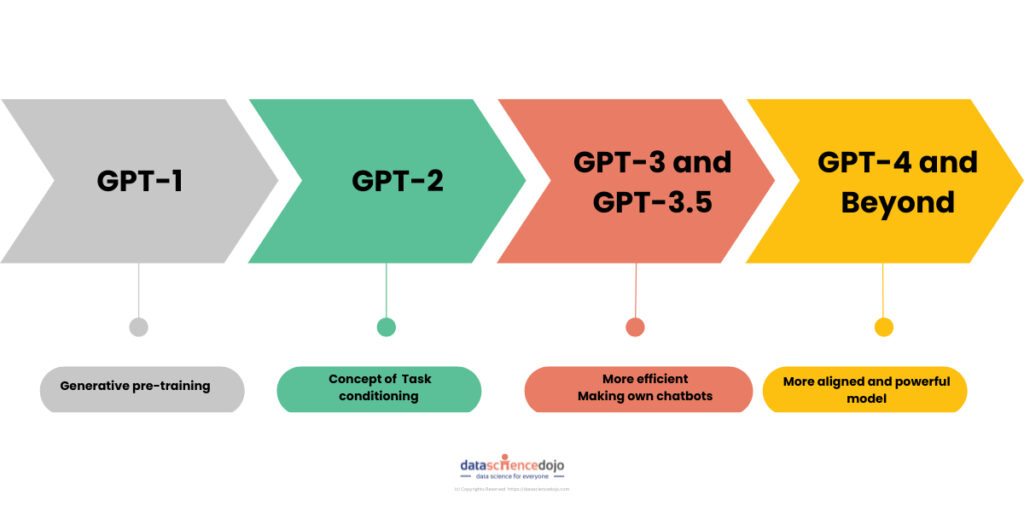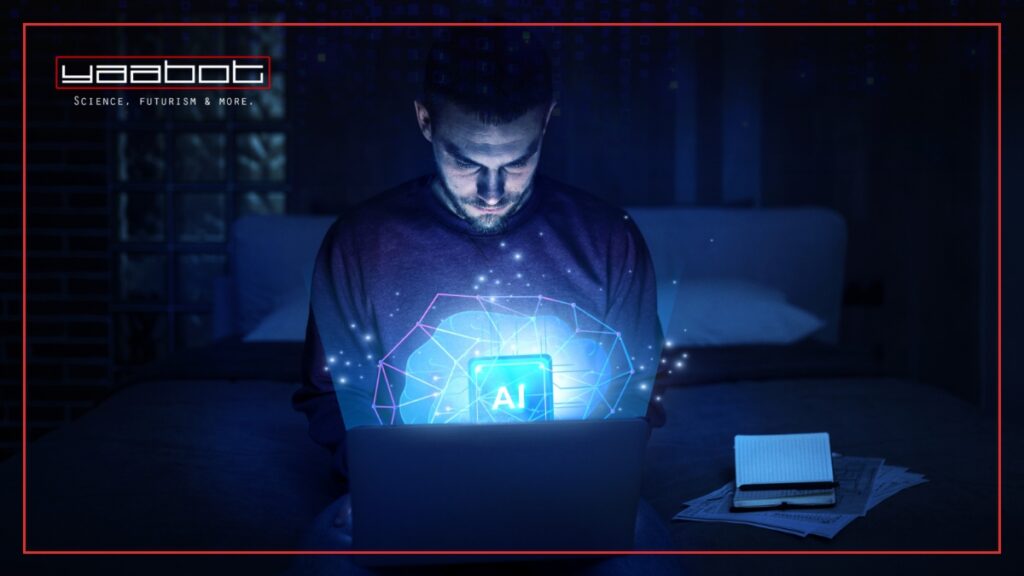OpenAI, the company behind ChatGPT, has been assembled by leading researchers, scientists, and entrepreneurs, including Sam Altman, Greg Brockman, Elon Musk, and others. With such a remarkable team driving the vision forward, it comes as no surprise that OpenAI has made waves in the field of artificial intelligence.
ChatGPT, one of OpenAI’s groundbreaking projects, has been widely acclaimed for its role in sparking the artificial intelligence revolution. In this blog, we’ll delve into the journey of OpenAI over the years and explore the exciting directions it’s heading towards.
OpenAI Governance
OpenAI has undoubtedly achieved success with its product innovations. However, Open AI governance innovations have faced significant hiccups. There are two entities when we talk about OpenAI:
- the non-profit OpenAI, Inc. and
- for-profit subsidiary OpenAI Global, LLC.
Designed to prevent product abuse, the company’s unique structure—a nonprofit entity owning a for-profit subsidiary—proved to be unpredictable and susceptible to the decisions of its directors.
There is a reason why most startups stick to a more traditional governance framework, adhering to which would enhance OpenAI’s scalability and bring greater predictability to its technological development.
OpenAI Products
In the realm of products and technology, OpenAI has clearly proved its mettle. Some of the most talked about OpenAI products include:
- GPT Series (Generative Pre-trained Transformer): This series includes OpeanAI’s GPT-3 as well as GPT, GPT-2, and the most recent, GPT-4. These are advanced language-processing AI models with the ability to generate human-like text. They can perform a variety of language tasks like translation, question-answering, and text generation.

- DALL-E and DALL-E 2: DALLE are AI models designed for generating digital images from natural language descriptions.
- ChatGPT: An iteration of OpenAI’s GPT-3 model, ChatGPT is fine-tuned for conversational responses. It’s designed to simulate human-like conversation in a wide range of contexts and can provide informative responses in a chat format.
- Codex: This AI model is focused on understanding and generating code. It’s capable of translating natural language instructions into code in a variety of programming languages. It is also the technology behind GitHub Copilot.
- OpenAI Gym: A toolkit for developing and comparing reinforcement learning algorithms. It provides a variety of environments where researchers and developers can test their AI models and algorithms.
- RoboSumo: This involves AI-controlled simulated robots in a sumo wrestling match. The project aims to understand how competitive environments can contribute to AI development, particularly in physical skills and adaptation.
- The Debate Game: An AI research project focusing on developing explainable AI through a format where machines debate various topics in front of a human judge, to enhance decision-making capabilities.
- Dactyl: A project that explores the use of AI in robotics, specifically manipulating objects with a robotic hand. It leverages reinforcement learning to control the Shadow Dexterous Hand in the physical world.
OpenAI’s Journey

OpenAI’s innovations include the development of large language models and advanced image generation models. These efforts have significantly influenced the AI landscape.
- Initially, OpenAI was structured as a non-profit to focus on AI research with positive, long-term societal impact. Their commitment to this goal led to the development of various AI technologies and methodologies. For example, OpenAI Gym, an open-source library for reinforcement learning research, and other projects like RoboSumo and the Debate Game were instrumental in exploring and advancing AI technologies in specific domains.
- Generative models have been a key area of focus for OpenAI. They have leveraged these models to explore the capabilities of AI, training them with large volumes of data to create outputs that closely resemble the original data. This approach has been pivotal in understanding and advancing the field of generative AI.
- A crucial aspect of OpenAI’s evolution is its partnership with Microsoft. In 2019, OpenAI accepted a $1 billion investment from Microsoft, followed by a multi-billion deal in 2023. This partnership has facilitated OpenAI’s continued research and development in AI, while Microsoft has gained commercial exclusivity in integrating and distributing OpenAI’s products. This collaboration is centered around three main pillars: supercomputing at scale, new AI-powered experiences, and exclusive cloud provider status for Azure, which powers all OpenAI workloads.
How is the Firm Addressing Ethical Issues in AI Advancements?

OpenAI’s mission is to ensure that AGI (artificial general intelligence) benefits all of humanity, but its journey has not been without criticism and challenges.
- The company’s shift from a non-profit to a “capped profit” status in 2019 raised concerns about its commitment to developing open-source, safe, and beneficial AI.
- The introduction of ChatGPT has been criticized for producing factually inaccurate answers and potential copyright issues.
- Concerns flared up about OpenAI’s image software, DALLE. Just with a few simple commands, it can create hyper-realistic images. Critics pointed out that such technology can be misused especially to target women and spread false information. Then OpenAI came up with an improved version, DALLE-2, which blocked harmful words like nudity and is also programmed to provide inclusive results. For ex: when asked for an image of a CEO, it will also present images of female CEOS. The top executives, including Sam Altman, are not a big fan of this paternalistic attitude. They believe that AI should be customized to each individual’s use.
- But where do you draw the line? For instance, Republicans have pointed out that OpenAI technology displays left-wing ideologies when asked about opinions on drag queens and the like. So, should OpenAI technology continue being involved in matters of politics and define its stand or should that be left to people to decide for themselves? Well, that’s for the team to find out.
On their front, OpenAI has done the following to deal with the ethical issues in AI:
- Enforcing strict guidelines for content generation, prohibiting the use of AI to create harmful or misleading content.
- OpenAI’s community discussions also emphasize the importance of ethical considerations in AI development and deployment, advocating for transparency and responsible practices.
OpenAI’s Innovations: Impact on Industries
OpenAI is being used in different industries, including healthcare, education:
- In healthcare, OpenAI’s AI algorithms are being utilized for more accurate disease diagnoses, including cancer and heart disease, by analyzing medical images. These algorithms also predict disease likelihood and recommend personalized treatment plans, enhancing patient care.
- In education, Arizona State University’s collaboration with OpenAI, specifically ChatGPT, marks a significant step in integrating advanced AI into higher education. This collaboration aims to enhance student success, drive innovative research, and improve organizational efficiency. The focus is on developing AI-driven projects to revolutionize educational techniques and support scholarly research.
Such initiatives demonstrate how OpenAI’s technologies are shaping the future of various sectors by leveraging AI’s capabilities for innovative and efficient solutions.
Future Projects
The future prospects of OpenAI, as of 2024, appear to be:
- OpenAI is poised to come out with GPT-5, which is expected to be more advanced, with improved learning abilities and the capability to handle various types of information including audio, images, and coding, in addition to text. This development will have a considerable impact on multiple sectors, such as advertising, marketing, media production, education, and scientific research. GPT-5’s ability to produce high-quality, interactive content and automate assessments can revolutionize personalized learning and elevate scientific breakthroughs.
- OpenAI envisions a future where AI capabilities are readily accessible as ‘superpowers on demand’. This concept is expected to materialize with the launch of a GPT “store,” which will enable developers to monetize their GPT-based applications. This initiative aligns with OpenAI’s approach to making conversational AI interfaces more widely available, potentially revolutionizing the way AI is integrated into apps and websites.
- OpenAI’s future is influenced by broader trends in the AI industry. These include the development of more sophisticated AI agents capable of performing tasks and connecting to services, the expansion of multimedia AI models (including video), and the shaping of AI policy and regulation. Additionally, OpenAI’s new initiatives, such as the Collective Alignment team, aim to align future AI models with societal values, indicating a growing focus on ethical AI development.
The company’s ability to navigate these aspects while maintaining its innovative edge and ethical standards will likely be key to its continued influence in the field of AI.
Final Thoughts
OpenAI has made significant strides in the field of artificial intelligence, with innovations like OpenAI’s GPT-3 and ChatGPT revolutionizing how we interact with technology. Despite facing governance challenges, OpenAI continues to push boundaries and shape the future of AI. With projects like GPT-5 on the horizon and a focus on ethical AI development, OpenAI remains at the forefront of technological advancement.
Stay in the loop with the latest in AI, science, and beyond by following Yaabot!


